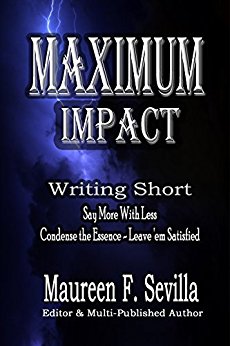If I were to uncover a piece of music that is completely unrelated to The Cellist of Sarajevo, would I still be able to draw connections? I accepted this challenge by analyzing a song that originated from an anime about the prohibition era. Ladies and gentlemen, I will connect the song, “Signal” by Toru Kitajima (TK), to The Cellist of Sarajevo.
 A screenshot of TK from the music video for “Signal.”
A screenshot of TK from the music video for “Signal.”
The original song is in Japanese, but here is an English translation sung by “Esturd”. Keep in mind, the English singer altered the Japanese lyrics to suit the melody. My analysis is based on this altered version.
The song is used as the opening for an anime called, 91 Days. I have never seen the series, but it follows a child, named Angelo Lagusa, whose family were murdered by the mafia. Fueled by hate, the child avenges his family by slaughtering the mafia members who shattered his family. Interestingly, he commits these killings under a different identity, which is Avilio Bruno, presumably to repress the remorse of his actions.
 Avilio Bruno
Avilio Bruno
Does this remind you of anyone? A gasp escaped my throat when I discovered that the anime’s premise and the lyrics to its opening, parallels Arrow’s internal conflict
If I could choose a name, these emotions would be freedom See how they are already changedThese lines explain liberation from remorse. The song references someone who appeases the guilt from their villainous actions by claiming that they committed them under a different identity. If they choose a name, their remorse would be relieved. This is a unique definition of emotional freedom that is identical to Arrow’s definition.
However, the term “freedom” may portray a different significance. Arrow, does not only avenge the merciless destruction of her city, but the death of her family. Arrow’s father, who was a policeman, was butchered by the men on the hills in one of the first frays to protect Sarajevo. The vengeance that she receives from killing the men on the hills may also be considered her emotional freedom.
After one failed attempt to eliminate the rival sniper who is assigned to assassinate the cellist, Arrow is upset. “When she doesn’t kill, she feels a loss that reveals a hostility within her that goes deeper than a lack of remorse. It’s almost a lust” (Galloway 110). It is clear that Arrow definitely feels a surge of freedom as she seizes vengeance one shot at a time. Killing is not Arrow’s desire but rather her duty. When she does not accomplish her duty, she feels a sense of failure
But what drives me to commit all these unforgivable sins Now pauses before it melts away May the meaning of that day, when I lay there drenched in blood, Never be forgotten anymoreIt is hate that feeds Arrow, but the novel concludes with the depletion of these furious emotions. After she disobeys the orders from Karaman’s unit, she becomes a priority on their hit list. Albeit, she refuses to kill them. “Twice she had Edin Karaman’s head in her sights, but she never pulled the trigger” (Galloway 254). The hatred that previously fueled Arrow pauses, but it completely melts away once her life sinks into the pits of death.
Arrow allows Karaman’s unit to breach the apartment and take her life. However, this is also the day that she returns to her former innocent identity, Alisa. This is the day that she will rest, drenched in blood. She wishes to be remembered as Alisa rather than Arrow. Thus, she prays that the meaning of this day will never be forgotten.
But if this hatefulness begins to fade, I’ll lose both your death and my resolve So I will remain as this version of me, made up of all these rotting sins[…]
Oh, hatefulness, won’t you stay by my side? Don’t leave me till by my hand you’ve diedThese lines return to Arrow’s malevolence prior to her demise. She is determined to bring death upon the men on the hills, thus her rancor and identity as Arrow must remain.
Now I yearn for company, but please leave me alone here If you keep on smiling at me, then I’ll know that these scars won’t disappear But I will do my best to never let them freeIn The Cellist of Sarajevo, we never see Arrow engage in friendly conversation, and she approaches people with a cold barrier. When visiting her commander, Nermin Filipović, it is obvious that she is uncomfortable due to her silence and awkward interaction. “[Arrow speaks] looking him straight in the eyes, something she rarely does” (Galloway 69). When Filipović later dismisses Arrow from his command, they hug. “Despite remaining always at a distance, he has become the closest thing to a friend she has” (Galloway 190). She does not wish for people to befriend and connect with Arrow, since this is not her authentic character. If substantial people recognize her as Arrow, it will be a challenge to remove the identity. Thus, her “scars” of murder will remain eternally.
Eternal knife that carves a lasting signal into my bleeding memories Even if the pain can all be wiped away by this compelling spiral, That version of me that continues wandering begins to fade inside me, hiding!This is the chorus of the song. The first line signifies the pain that continuously returns to Arrow. In my Third Discussion Post, I inserted a quote that reveals the girl’s memories while listening to the cellist. “Her mother is lifting her up, spinning her around and laughing. The warm tongue of a dog licks her arm. There’s a rush of air as a snowball flies past her face. […] In a movie theatre, a boy she likes kisses her and puts his hand on her stomach. She exhales, and pulls the trigger” (Galloway 75). The final line from this quote is crucial, as it exposes the guilt that will permanently remain within her memories.
The compelling spiral mentioned in the second line, represents the numbing of Arrow’s emotions as she adapts to her executions of massacre. “She thought about what it might be like to pull the trigger and have her bullet hit a living being instead of a piece of paper. She was mildly surprised to find that the thought didn’t horrify her, that she could probably do it, and she could probably live with it” (Galloway 70).
The final line describes the disappearance of Arrow’s former version of herself. “She’s aware, now, that the woman who sat in this office on that day and said she didn’t want to kill anyone was gone, […] she has lost sight of the person she was…” (Galloway 72).
None is allThese are three words that are repeated four times as closure for the piece. I perceive this as Arrow’s mindset to cope with her murderous persona, which I explain in my First Discussion Post. If Arrow fails to murder anyone from the adversarial group, then more people from Sarajevo will suffer. Thus, killing none (the men on the hills) is killing all (the residents of Sarajevo).
The lyrics of “Signal” bleed anguish. They represent a desperate ache for change, however, most lines are delivered in a whisper. The lyrics understand that the desired transformation is impractical.
This transformation is to be free from executing murder.
It’s rather fascinating that I was able to connect Arrow’s internal conflict with the opening to a Japanese television series. Not to mention that the protagonist to 91 Days correlates to our sniper as well. Clearly, many stories share the same ideas to create depth in their premise.
SOURCES
“91 Days Image #29053.” Less-Real, Less-Real. <http://www.less-real.com/images/29053>.
“Toru Kitajima.” Comtrya, Comtrya Sugoi. <https://www.comtrya.com/2016/tk-from-ling-tosite-sigure-2nd-single-signal-pv-and-details/>.
Advertisements Share this:




